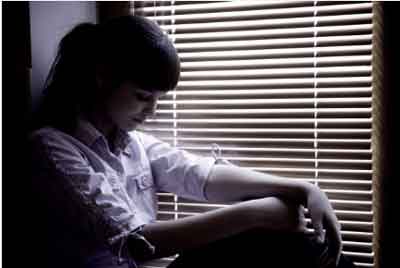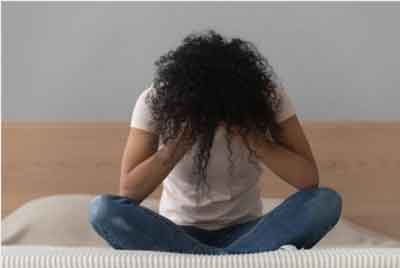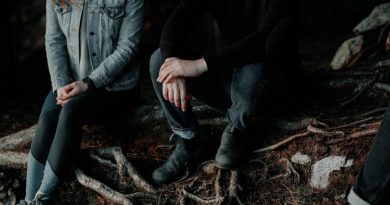Can You Get PTSD From Being Cheated On
PTSD (Post Traumatic Stress Disorder) is mental health that occurs in people who have gone through a life-threatening event or experienced trauma at a time in their life. People react or experience PTSD differently, based on their different experiences and traumas.
Research says ‘ 70 percent of adults experience at least one traumatic event in their lifetime but only 20 percent of people who experience a traumatic event will develop PTSD’
PTSD is more common in people who have experienced domestic violence, war, conflicts or violent crimes, sexual abuse, childhood traumas, physical abuse, and life-threatening accidents.
Can you get PTSD from being cheated on? It is almost impossible and quite rare to get PTSD from being cheated on. While it is quite damaging to the emotional health to be cheated on, and while this can cause a whole lot of things to the mental health. The stress from being cheated on is usually not enough to lead to PTSD. However, you can get PISD which has quite similar symptoms to PTSD.
PISD (Post Infidelity Stress Disorder) is a mental health disorder you can possibly get from being cheated on.
The similarities of their symptoms can make it seem like you have PTSD but it is rare to develop this disorder from such a situation. When you discover your other half has been unfaithful, it can be quite traumatic, heartbreaking, and painful knowing you have trusted someone so much and your trust got shattered can be one of the most painful parts of infidelity.
But this pain is not enough to cause PTSD?
What can cause PTSD?
PTSD (Post Traumatic Stress Disorder) can be developed when you have gone through a life-threatening or near-death experience, sexual violations, physical abuse, domestic violence, or even inherited mental health issues.
PTSD can be found in both children and adults, and while a lot of circumstances can cause PTSD in children, some adults develop this mental disorder from childhood.
Causes of PTSD in Children
- Domestic violence: If a child witnesses domestic violence in the home. The child is more likely to develop PTSD as a result of how life-threatening or dangerous he perceives the situation to be.
- Physical abuse: If a child is being physically abused at a very young age. This can trigger PTSD in the child and can cause the child to start showing symptoms as a result of the extreme fear this situation triggers in his/her mind.
- Sexual abuse: A child who has been constantly abused sexually, can develop PTSD at a young age. This situation can cause the child to have memory loss, inability to concentrate, and fear of associating with other people.
- Life-threatening situation or accident: Children who have gone through this situation tend to develop PTSD and this causes them to have nightmares and intrusion of memories. Some even forget that painful part of the memory, especially if they lost a loved one, and then they begin to hallucinate or frequently get flashbacks of the accident.
Other causes of PTSD in a child can be watching a loved one die online, being in a house fire, witnessing a crime scene, natural disasters, being neglected or abandoned by parents or guardians
Causes of PTSD in Adults
- Life-threatening accidents: If an adult gets involved in a life-threatening accident that leads to the loss of a loved one or so many people and they managed to survive, they can develop PTSD from witnessing such an experience.
- Sexual or Physical abuse: If an adult gets involved in sexual or physical abuse, it can damage their self-esteem and also make them feel useless and violated. This can develop PTSD in the victim.
- Childhood trauma: If as a child, an adult had to go through traumatic experiences such as sexual or physical abuse, domestic violence, or serious accidents, the child can develop PTSD as an adult.
- War: This mostly happens to military veterans, medical workers during the war, and people who survived the war. The aftermath of seeing so many killings and losing a lot of people at a time can trigger PTSD in adults.
- Losing a baby during childbirth: Losing a baby during childbirth can cause a major trigger of PTSD. This leaves the mother and sometimes the father, feeling inadequate and constantly wondering if they had done something wrong and what they could have done better.
Other causes of PTSD in an adult include; Torture, near-death health issues, inherited mental health issues, and so on.
While these events are traumatic, not everyone who goes through these experiences develops PTSD but there are some factors that can cause a traumatic experience to develop into PTSD.
Such as:
- Having multiple traumatic experiences: Just after going through a traumatic experience, if the victim of this event goes through yet another traumatic event, this might trigger the memory, hurt, and pain of the former experience and cause PTSD to develop as you relive the memory of the previous traumatic experience.
- Experiencing stressful situations: Dealing with one or more stressful situations can cause PTSD to develop. The stress triggers the pain of the traumatic experiences and greatly affects the mental health of the victim.
- Losing a loved one in the process of the event: Traumatic events might not be so traumatic if it happens with people who are not so close to us. But losing a loved one in the process of a trauma can cause one to develop PTSD. The constant void the loss of a loved one brings can make the effect of the traumatic experience worsen in a person’s mind and this can cause PTSD to develop.
Other factors that can cause a traumatic experience to develop into PTSD includes:
Reoccurring trauma, mental health history, past history of depression or anxiety.
What are some of the symptoms of PTSD?
In other to truly be sure you have PTSD, check if you are exhibiting these symptoms:
- Having flashbacks from traumatic experiences
- Having continuous nightmares about the experience
- Constantly experiencing intruding bad thoughts
- Avoiding people, place, or things that trigger the memory of the traumatic experience
- Having difficulty sleeping
- Outbursts of anger
- Feeling guilty or blaming oneself for what happened
- Memory loss
- Distorted memory of a traumatic event
- Preferring to be alone than to be with others or be associated with other people.
Still not sure if it’s PTSD you have or PISD?
Answer some of these questions:
- Have you ever gone through an unforgettable traumatic or life-threatening experience?
- How did you feel after this event? Did you feel hopeless, terrified, or violated?
- Have you been able to get the experience out of your mind or does it get worse with each passing day?
- Do you feel scared, anxious, or extremely sad at the mention or trigger of the memory of the event?
- Do you avoid people, places, or things that remind or triggers the memory of the experience?
- Since you had the traumatic experience, have you been battling with memory loss or inability to concentrate?
- Are you finding it hard to go on with your normal routine since you had this experience?
- Has it been over a month since the event happened and do you still feel the effect like it was yesterday?
- If you answered yes to four or more of the questions above, you may have PTSD
How to deal with PTSD
Dealing with PTSD might be one of the most difficult situations to go through after going through a traumatic experience.
Recovery can be very daunting and slow, but there are many processes and steps that can help you recover from PTSD.
It might take some time for you to get over the memories of the traumatic event, the feeling of anxiety, fear, and isolation, but recovering from PTSD is totally worth the process.
- Getting educated about PTSD is a very good start to dealing with PTSD. Reading articles like this one, getting to know if you are just going through a phase after your traumatic experience, or you have PISD or PTSD is very essential. Knowing you have PTSD will help you take the next step of dealing with it.
- Strengthening yourself by constantly reminding yourself that you can get past this and that your situation does not have to get the better part of you. Helping others and bringing hope to others or people who are also experiencing a challenging and difficult situation is a very good way to combat PTSD.
- Exposing yourself to the traumatic experience is also a good way to deal with PTSD. It might be very hard at first but avoiding the people, place, and things that remind you of the event can cause the fear to compound and make it even more difficult to overcome. Facing your fears and also talking about and trying to make sense of the situation can really help in dealing with PTSD.
- People with PTSD have the tendency to blame themselves for the traumatic events that occur in their lives. A good way to deal with this feeling of self-blame and self-loathing is changing your thought pattern. Constantly thinking positive about yourself and understanding that it is not your fault that you had to go through such a traumatic experience can be a good way to deal with PTSD.
- Avoiding negative coping mechanisms like alcohol, drug, and substance intake; may seem like a good way to numb your feelings and forget about how you feel, but it will only last for a while. After the substance wears off, you will feel even worse and also damage your body system by overindulging in the use of these substances.
- Getting involved in physical activity is another way to deal with PTSD. Physical activities like exercises, running, yoga, and so on can be a great way to deal with PTSD.
- Taking medications can sometimes be a great way to deal with PTSD. Though it does not treat or relieve PTSD, it is a good treatment for some of the symptoms of PTSD like anxiety and depression.
- Seeing a Therapist is also a very important way to treat PTSD. Therapists will take you through different therapy processes that will help combat and deal with PTSD. They take you through different therapy processes like Cognitive Processing Therapy that helps change your negative emotions and thoughts into positive ones. They also help change human behavior.
To know more about Cognitive Processing Therapy and other therapy processes you can use in dealing with PTSD, check out BetterHelp; they have a range of information on PTSD and how to deal.
Some other ways to deal with PTSD include: Adopting a trained pet, meditation, writing and journaling, purposeful distractions, practicing deep breathing, practicing self-care, getting enough sleep, taking warm baths, eating healthy meals, spending time in nature: hiking, taking walks, etc., confiding in trusted friends, spending time with positive people, becoming a member of a PTSD support group.
Conclusion
Just like you have seen in this article, it is so easy to conclude that someone suffering from PISD (Post Infidelity Stress Disorder) has PTSD (Post Traumatic Stress Disorder), which is most likely not true.
PTSD is a more severe mental health issue that can be very detrimental to one’s physical and mental health, and can also be life-altering.
Before you diagnose yourself or anyone around you with any form of mental disorder, make sure you get adequate information and knowledge about the various disorders and also speak to professionals, counselors, psychologists, and therapists who are knowledgeable about mental health issues involving your symptoms and experiences.
This will help to avoid a lot of issues and also help to deal with the disorder quickly before it gets out of hand.





